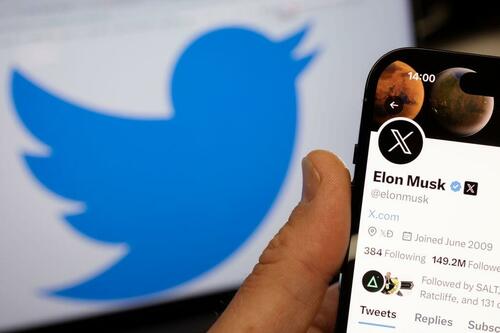EU Offered X Secret Censorship Deal To Avoid Fines For ‘Deceptive Dark Patterns’, Musk Says
EU officials have issued preliminary findings of an investigation into Elon Musk’s X Corp., accusing the social media giant of restricting data access for researchers, lack of advertising transparency, and the design of its “blue check” verified account system leaving users open to deception.
The European Commission, the EU’s executive body, announced on July 12 that it believes X has violated the Digital Services Act (DSA), a sweeping law whose stated aims include reining in illegal content on social media platforms and forcing tech companies to be more responsible and transparent in their content moderation and advertising practices.
“In our view, X does not comply with the DSA in key transparency areas, by using dark patterns and thus misleading users, by failing to provide an adequate ad repository, and by blocking access to data for researchers,” Margrethe Vestager, executive vice-president for A Europe Fit for the Digital Age, said in a statement.
This notice refers to an investigation opened in December 2023. Among the concerns raised at the time were X’s moderation practices, use of generative artificial intelligence, failure to provide required data to researchers and lack of transparency over its advertising practices
As of July 12, Musk and X are on official notice that they’ve been found in violation of the DSA. However, as EU Internal Market Commissioner Thierry Breton recently wrote on X, these findings aren’t final and “X has now the right of defence.”
In his usual pointed way, Musk responded:
“How we know you’re real?”
How we know you’re real? 🧐
— Elon Musk (@elonmusk) July 12, 2024
As Tom Ozimek reports via The Epoch Times, following an in-depth investigation into X’s compliance with the DSA, the European Commission said it identified three key problem areas.
The first of these involves the use of “dark patterns,” which it explains as design elements that manipulate users into making choices that may not be in their best interest.
The commission alleged that X’s “blue check” verification system is deceptively designed, fails to meet industry standards, and is being abused by malicious actors to deceive users.
The European Commission alleged that allowing anyone to subscribe for verified status undermines users’ ability to make informed decisions about account authenticity and content.
“Back in the day, Blue Checks used to mean trustworthy sources of information,” Thierry Breton, commissioner for Internal Market, said in a statement. “Now with X, our preliminary view is that they deceive users and infringe the DSA.”
The second area of non-compliance claimed by the commission is that X allegedly lacks transparency in advertising by failing to provide a reliable, searchable ad repository, instead implementing design barriers that hinder supervision and research into online advertising risks.
Third, the European Commission accused X of restricting researcher access to public data, discouraging research by prohibiting independent data scraping, and imposing high fees for application programming interface (API) access.
The social media giant now has the opportunity to respond to the allegations and make changes so it’s in compliance with the DSA rules.
If the company and its founder are ultimately declared in violation, they face fines in excess of $200 million dollars – 6% of the company’s turnover, which was approximately $3.4 billion for 2023.
The company would also face a period of supervision, while it brings its products and services in line with the law.
Repeat offenders may be banned from operating in the EU altogether.
X’s press team replied to a request for comment with its customary “busy now, please check back later” automated message, while an inquiry sent to its EU-related team was not returned.
However, Musk did have a response… and it’s very revealing as to the real drivers of the EU’s heavy handed ‘protectorate’.
Musk alleged in a post on X that the EU commission had offered him a secret deal if they quietly censored speech (al la Twitter 1.0)
The European Commission offered 𝕏 an illegal secret deal: if we quietly censored speech without telling anyone, they would not fine us.
The other platforms accepted that deal.
𝕏 did not. https://t.co/4lKsaRsYoA
— Elon Musk (@elonmusk) July 12, 2024
Mike Benz, a former Trump administration official, highlighted this to suggest the EU’s real motivation is to “use the DSA to force X to restaff the censorship squad fired when Elon took over.”
He further alleged that people who present themselves as researchers are actually “censorship activities & political operatives.”
Musk reposted Benz’s analysis with just one word of comment:
“Exactly.”
Does anyone doubt this?
Tyler Durden
Sat, 07/13/2024 – 14:35

